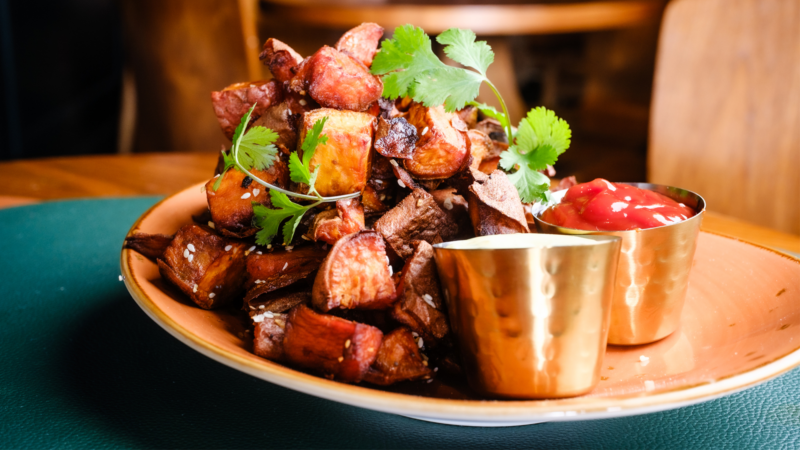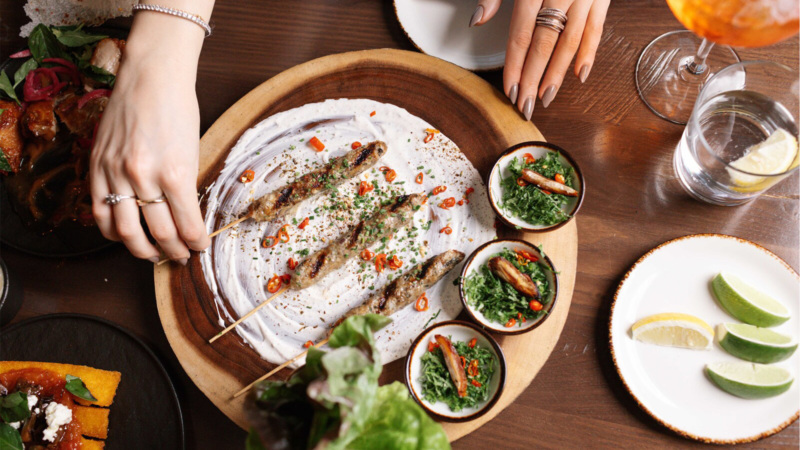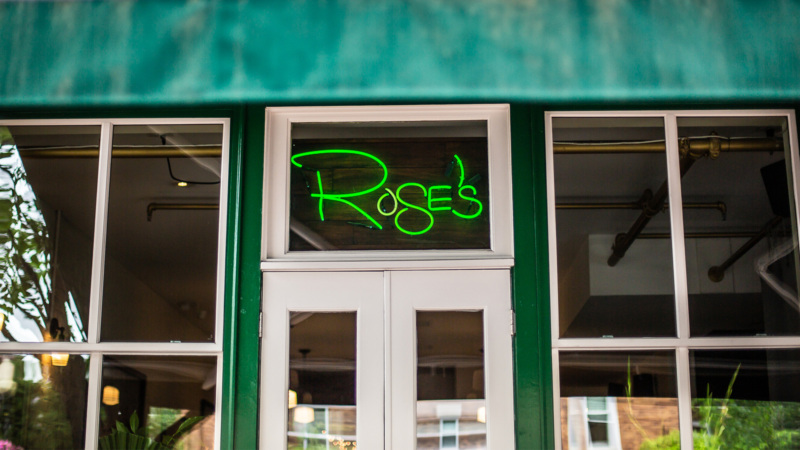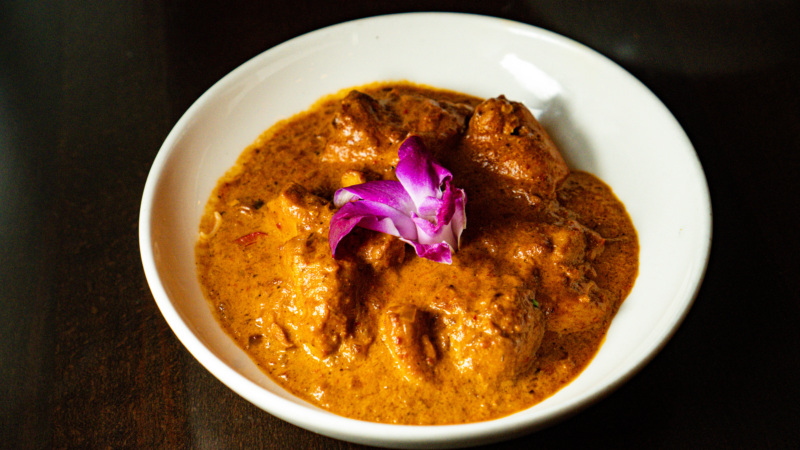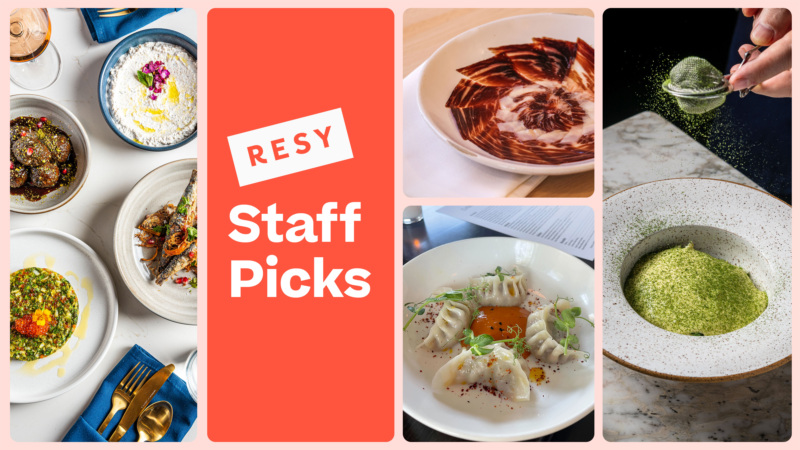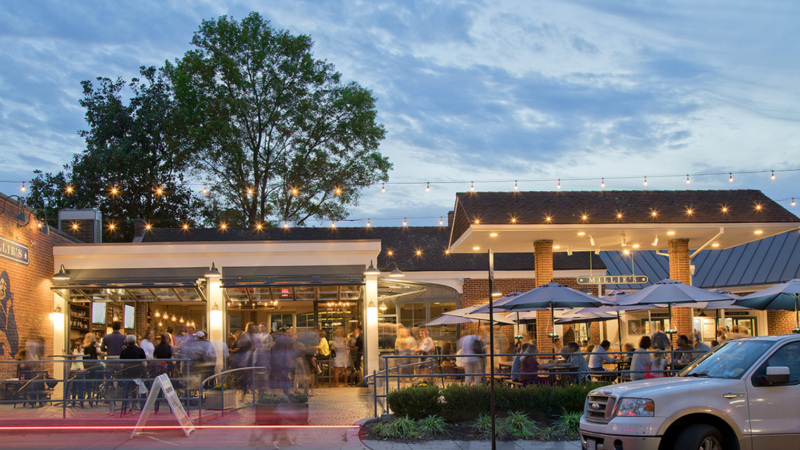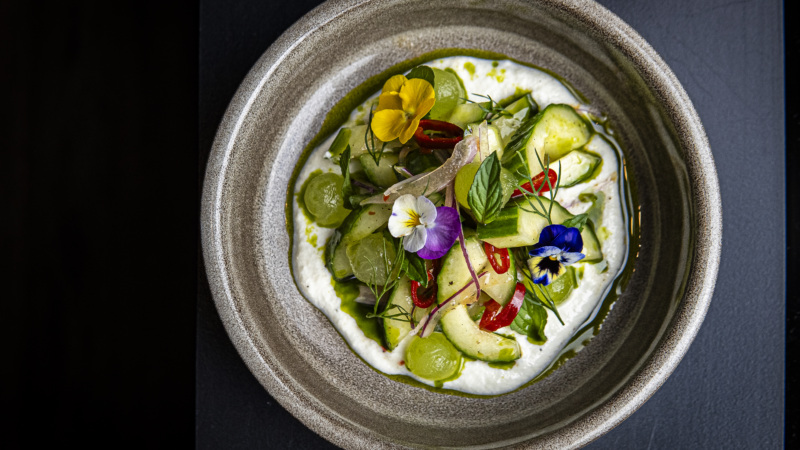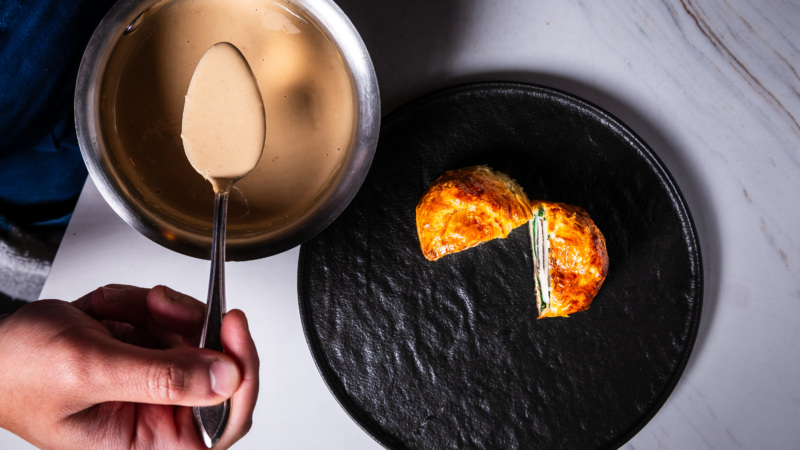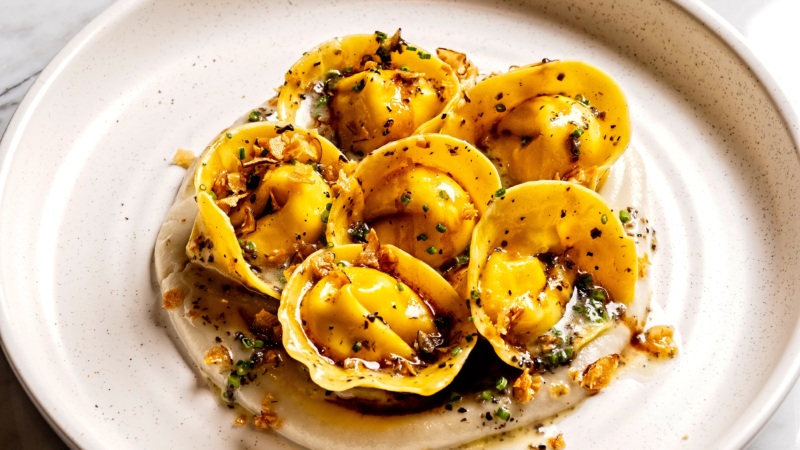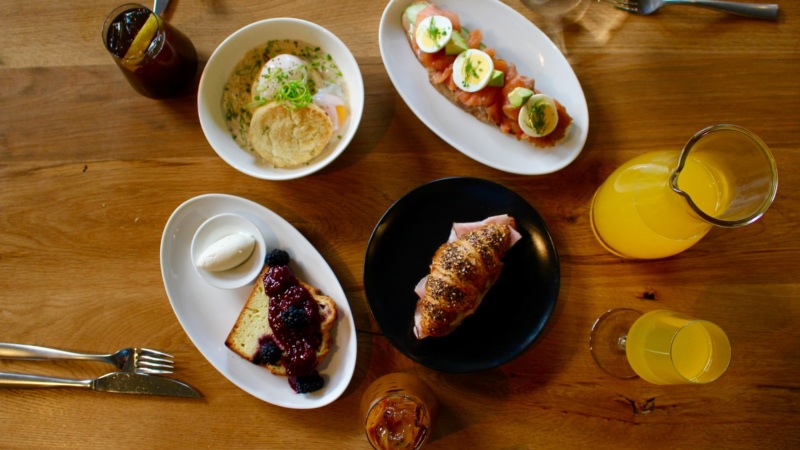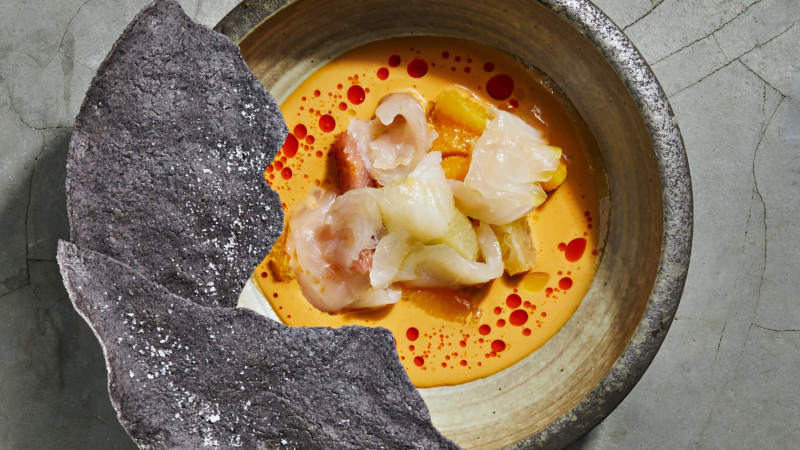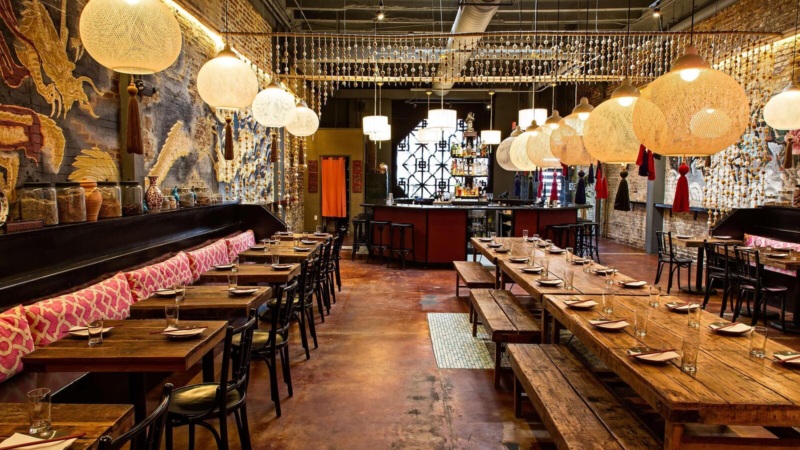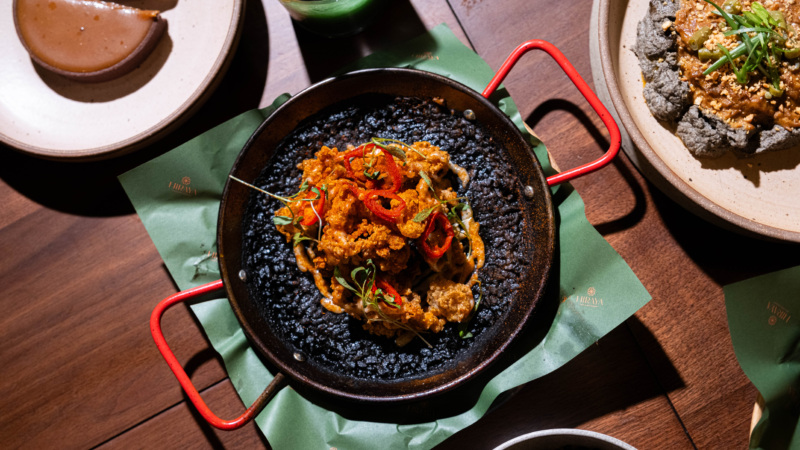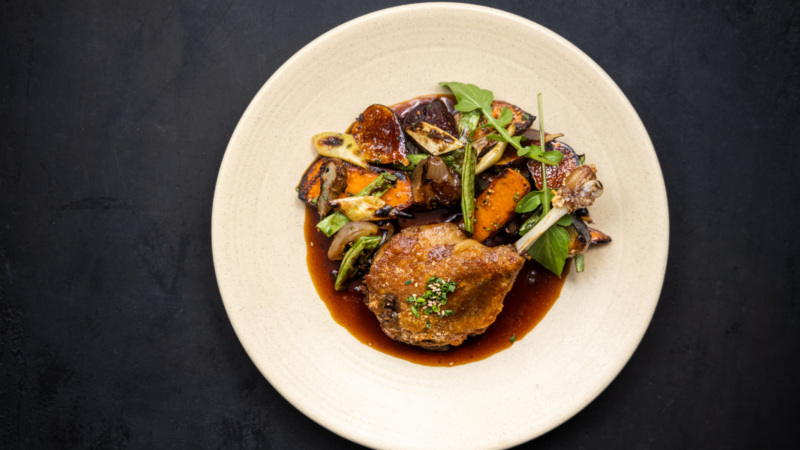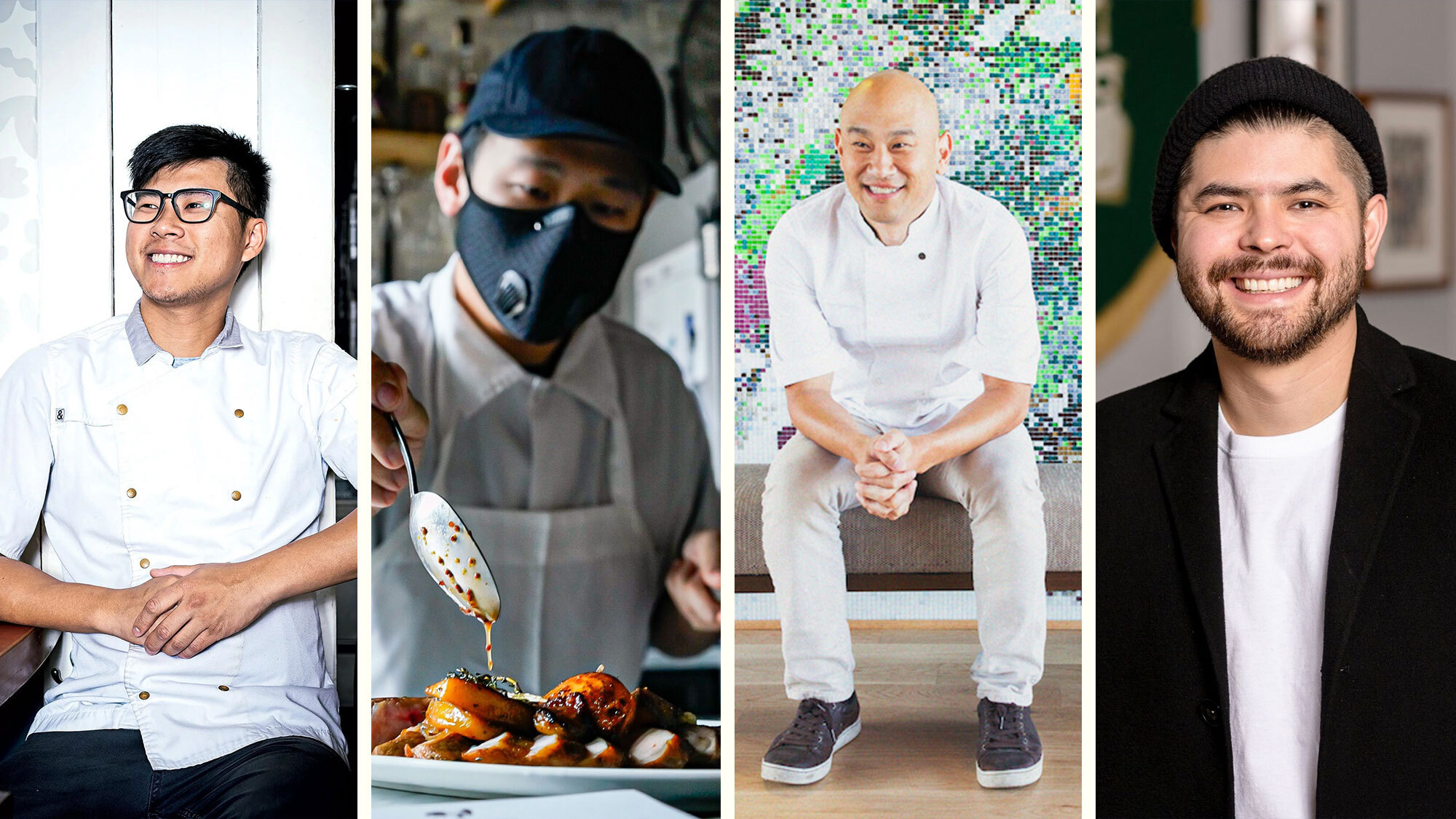
Resy Spotlight Washington D.C.
A Conversation with Chefs Stopping AAPI Hate
Editor’s note: Moon Rabbit has rebranded into a new concept, Dockside Restaurant and Bar.
After seeing and being directly impacted by a surge of hate-related incidents directed toward the Asian American and Pacific Islander (AAPI) community that’s only intensified over the past year, D.C.-based chefs Kevin Tien (Moon Rabbit) and Tim Ma (Lucky Danger) decided to do something about it.
What originally started as a Mission Michelin supper club dinner planned for March 25 has now become the Chefs Stopping APPI Hate dinner series, an entire multi-week dinner series featuring 45 of D.C.’s most acclaimed chefs and restaurants, including Pogiboy’s Tom Cunanan and Paolo Dungca, Rose Ave Bakery’s Rose Nguyen, Albi’s Michael Rafidi, and the entire team behind Tail Up Goat, among many others. The series is expected to last through at least the end of May in D.C., with eventual plans to expand to other cities.
Each meal ($150) will feature dishes from five different D.C. chefs, and proceeds will be donated to Stop AAPI Hate, a nonprofit that tracks and addresses discrimination against the AAPI community. It was formed last year as a response to the pandemic and since March 2020, the organization has reported more than 3,800 anti-Asian hate incidents in the past year, the majority of them against Asian American women.
The Chefs Stopping AAPI Hate dinner series officially launches on April 4, and tickets are sold out for the inaugural March 25 takeout meal, a collaboration among Moon Rabbit‘s Tien, Lucky Danger’s Ma, Maketto chef Erik Bruner-Yang, Q by Peter Chang chef Peter Chang, and Rooster & Owl chef Yuan Tang.
On Wednesday, March 17, we sat down with Tien, Ma, Bruner-Yang, and Tang to talk about why they’re spearheading this dinner series and how they feel about what’s happening to the AAPI community.
An Update: In May, Tien and Ma are expanding the takeout dinner series to both New York City and San Francisco. Click here to learn more about the NYC takeout series and to buy tickets.
The following conversation has been condensed and edited for clarity.
***
Resy: I think all of us are probably thinking about what happened last night in Atlanta, and I wanted to ask you how you feel about that.
Kevin Tien: A lot of us that have been working on and thinking about what we can do and how to expand the dinner series to spread awareness. And after hearing about the news the other day, you know, a lot of what I’m realizing is that there’s not enough coverage or awareness. I’m asking myself if I should have said something sooner. If we did something sooner, would that have helped or prevented this from happening? This has been going on for a year and a half. It should have been addressed long before us getting together.
Erik Bruner-Yang: Yesterday was this kind of an exclamation point on the suffering and violence that’s been happening for the last 12 months, specifically, with the rise of anti-Asian American sentiment in the U.S. based on the past administration’s rhetoric toward us.
I think that Asian Americans, in general, we’ve been kind of culturally desensitized for providing for our own plight. A little bit of that result is really us either trying to be advocates for others and being allies to other BIPOC groups. But now I think we can take this opportunity to — for our generation — to really take a stand. To fundamentally address how we feel, and how it feels to be Americans in this country, for us. And what that means to protect those in our community.
Yuan Tang: It’s scary to hear news like that. It’s surreal. When I hear news like that, I think about my daughters. They’re of Asian descent and I can’t imagine if something like that happened to them just because of the way they look, or you know, the color of their skin.
Tim Ma: I hope that we get this [dinner series] going so that we don’t have to see any more stories like this in the newspaper going forward.
Resy: What we’ve seen with a lot of the recent attacks on the AAPI community is that a large proportion of these attacks are directed toward AAPI women. What happened in Atlanta sheds a spotlight on that in a very specific way.
Tang: This is one of the most emotional parts for me because I have two young daughters. I want them to be able to exist without fear with the same freedoms as anyone else and not get targeted based on their race. I feel an obligation to help create a new reality.
Tien: For me, the women in my family have always been the strongest and carry the weight of taking care of the family and everything is always on their shoulders. So, for the proportion of attacks to be directed toward women is absolutely disgusting and it must stop. We cannot let our sisters, mothers, and grandmothers carry this burden alone. We have to be vocal and stand together with them to speak out against all this hate.
Bruner-Yang: From U.S. immigration policies dating as far back as the Page Act of 1875 to U.S. military imperialism, Asian women in America have been sexualized, marginalized, and oppressed by stereotypes. As Asian men in our communities who are not faced with those same experiences, we have a responsibility to stand up for the women of the AAPI communities close to us and far. Not only because of the power dynamics in our own cultures, but because of the power dynamics of gender in the United States, male AAPI leaders need to advocate aggressively to change this perception of how women are viewed by others. Second–generation and beyond Asian Americans have to stand up and demand recognition of their communities, their rights, and respect of their cultural offerings.
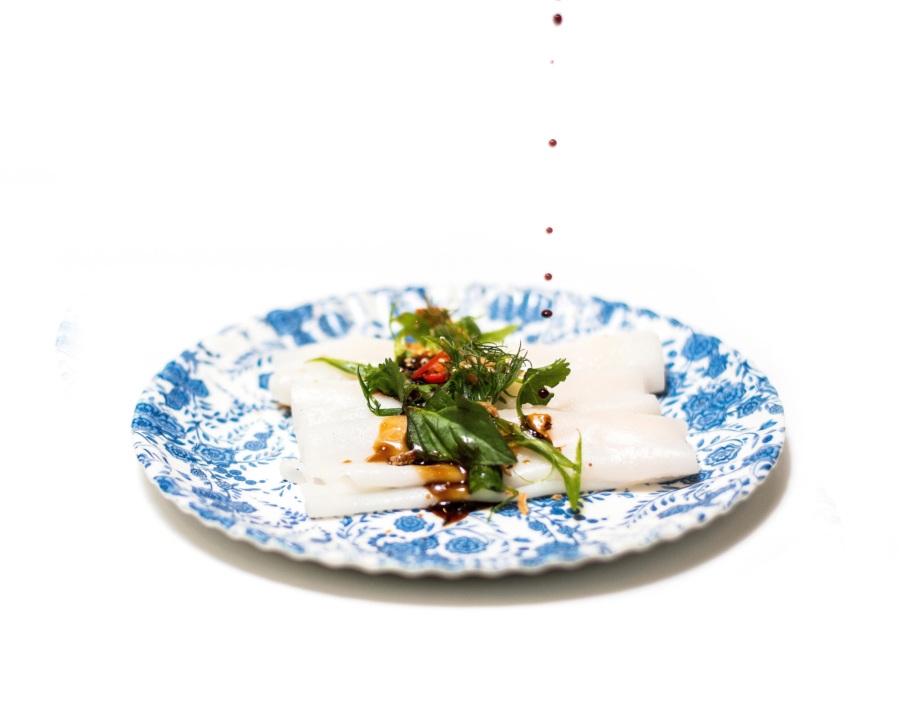
Resy: Have you personally been affected by what’s been happening?
Bruner-Yang: I mean, I’ll speak for every single one of us on this call: We’ve all experienced racism in this country directed toward us. I just know, you know? Even though I can kind of pass off as non-Asian pretty easily, being half, I know.
During the pandemic, my restaurants have been broken into three times. I‘m not able to correlate whether that’s exactly Asian related, but we can definitely see a trend over the last 45 days. In Northern Virginia and Maryland, there have been about six dozen incidences of robberies of Asian businesses. Our own colleague, Lydia [Chang], who’s doing the dinner with us but couldn’t be on this call, her restaurant in Baltimore [NiHao] was broken into 48 hours ago. You don’t have to know each other personally to know what’s happening.
Tang: I did have a line cook who is an intern from Korea. He lived in D.C. and actually came into work one day during the pandemic and told me he was really scared when he went to the grocery store, because people were just harassing him and asking him to go back to this country.
We shouldn’t be scared to go out to do normal things. We shouldn’t feel afraid to go to a grocery store.
Resy: Anti-AAPI violence and hate is not new. Even though there’s been a surge of incidences over the past year, it’s now new. One thing I’ve personally struggled with when I talk to non-AAPI folks about this is (1) convincing them that this is real and (2) that it is actually as bad as it is. Why do you think there’s this disconnect?
Bruner-Yang: That’s the issue, right? The issue is the lack of understanding that we have shared experiences as being BIPOC in this country of immigrants. They look at you, they look at me, they look at anybody on this call, and they’re like, “You’ve got a good education. Your parents worked really hard. He owned a restaurant, a small business. You have a nice job with Resy. What could be so wrong? Look, you have everything you need?”
I think they associate “minority” with failure. And they’re looking at us and saying, well, you haven’t failed. So, how can you have any issues? Everyone has a tough time. And I think it’s their inability to recognize that we have these experiences. Just because we have not outwardly expressed our pains doesn’t mean that they’re not there. Being a minority should not equate to being oppressed, right? And just because you can’t visually see my oppression, it doesn’t mean that it doesn’t exist.
Ma: One of our missions, and the mission of Stop AAPI Hate, is to just increase awareness. Getting it out there that this is happening, rather than just brushing it under the rug is going to be key. We need to point out that these occurrences are happening to people who look like us.
Tien: For a lot of us, we learn from our parents to not speak out about the hardships we go through. Even my grandmother, she doesn’t talk about the hardships from when she immigrated from Vietnam into America. And unfortunately, I think that was passed on to my parents’ generation.
But I think it’s time for our current generation, like everyone on this call right now, to speak up. No longer can we be silent about things that are going on in our communities, to our friends, our neighbors. I think it just takes one person to take kind of take a step forward to speak about it, to spread awareness, to do something. For other people who are scared to say something, or who don’t think it’s their place to say anything, I think as long as everyone else is doing something, then they‘ll be more proactive, or less afraid to speak out or feel comfortable enough to reach out for help.
Resy: In addition to raising awareness of this, what’s the call to action that you want to raise?
Tang: I think step one is recognizing that this is a problem, that this is an issue. And then from there, we figure out how to how to address it.
Tien: Awareness is always step one. And only once you’re aware of the issue, can you continue to learn about it? And then after you learn more about it, how can you actively get involved and what you can do next to help?
Bruner-Yang: We’re a year in where we had the Black Lives Matter movement and the death of George Floyd. The call to action then was just to self-educate, to learn what racism is, to learn anti–racism actions, to learn the foundations of why these systems of oppression exist in our country. If people still don’t understand what we’re talking about, they should ask themselves what they’ve been doing for the past year.
If you’ve been posting your support for Black Lives Matter, you’ve been doing this and that and donating, that is nothing if you’re not actually taking the time to self–educate. So, we’re talking about essentially an identical 12–month cycle with another issue of massive violence against minority groups in this country, and people are asking the same question. One year later, it’s “What do we do?” What you do is, you buy a damn book, you read it, and you figure out your own biases and it’s as simple as that.
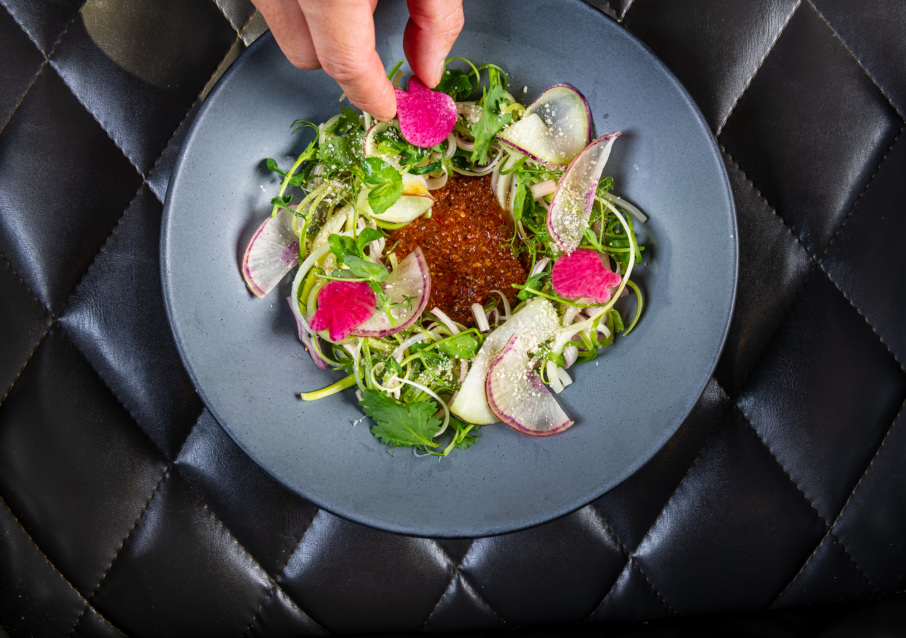
Resy: One image I can’t seem to get out of my mind is of a recent photo that was taken at a rally against AAPI hate here in New York City. It was a photo of a woman holding a sign and her sign read, “love our people, like you love our food.” And I keep thinking about this in regard to the restaurant community. Do you feel like, as chefs, you have this sort of special position, or role to play in educating people about these things?
Tien: I think all of us here have a platform that a lot of people don’t have, right? There is a power through food. It can be a way to communicate a message. I worked for Jose Andres for a little bit, and he talks about that all the time. And it’s 100% true.
There are so many people that go through our doors, that order takeout, that sit in our restaurants, and we have these platforms to reach hundreds of thousands of people. And if we can even educate a percentage of our guests, or get a percentage of them to be active, it’s already going to be a better day tomorrow, or it’s already a step toward the right place. Our voices can be heard so much further and louder; we 100% have to use it.
Ma: I think a lot of people’s introduction into somebody else’s culture is through their food. And so there’s a certain responsibility to that culture. I think that’s why you see a lot of people gravitate towards doing things like this, because we have a responsibility to do that.
Tang: We have tools in our tool belt to kind of promote this message through food, which is a common language that everyone can understand.
Resy: What I thought was really special about this dinner series is how quickly you were able to mobilize so many chefs–45 different chefs. How was the process of getting everyone together for something like this?
Tien: The chef community in D.C. is very, very close and tightknit. Honestly, it started with a call and then it went from there. As soon as I said, “Hey, I would like your help with something,” everyone said, “Yes.”
I think it’s important to have a lot of chefs that are outside the AAPI community, too. If we’re really going to stop hate, and racism, it takes everybody to be a part of it. Together, you know, it’s something that we can hopefully stop.
Resy: Is there anything in particular that you want diners to know about the dinner series?
Tien: The money is going to Stop AAPI Hate.
I think some people will see the price point for the meal, especially the first one, where it’s five Asian American chefs. And it’s five courses for $150. Some people might say, “Oh, that’s so much money.” But I think, at the end of the day, that’s how much a couple would spend at a restaurant, dining out at any of our restaurants, right? So, I think the value is definitely there. You get five different restaurants, five or six different chefs.
A lot of people have asked us like, “Oh, why do five courses from five Asian chefs cost so much?” And I don’t think it costs too much. I think the question they need to ask is, why do you think that our food should be valued so little? That’s an important question that I’ve been thinking about, about the value of what we’re offering. It’s another big uphill battle for all of us: it’s their perception of our food, and people think it’s cheap. But it’s so rich in culture, and memories and recipes from our families, that it is worth just as much as everybody else’s.
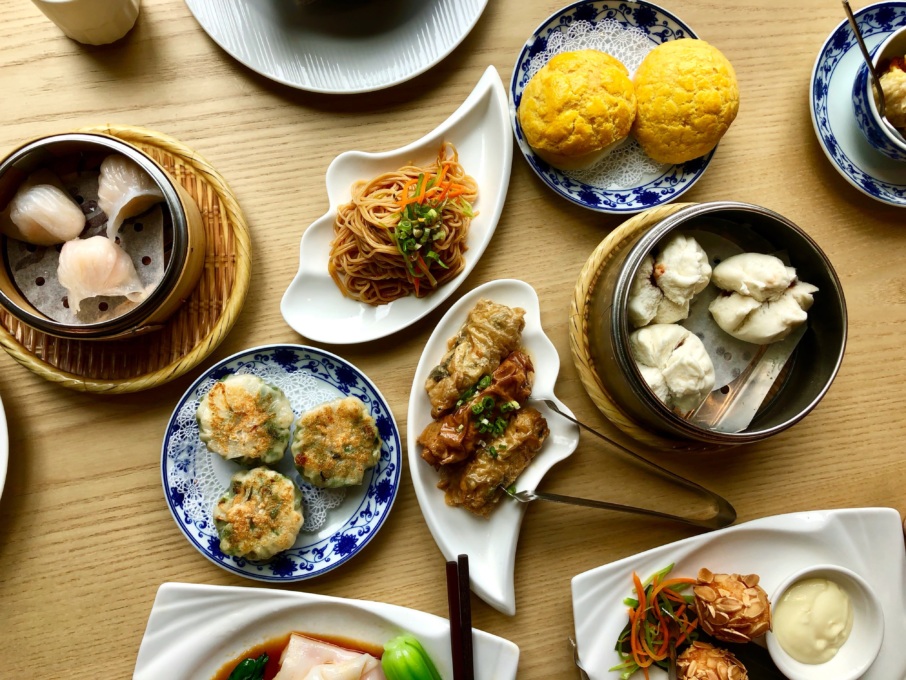
Resy: Those perceptions are definitely an extension of how our culture is perceived and how our culture is valued. I wonder, what would you like to say to fellow Asian Americans right now? Or to those who aren’t in the AAPI community?
Tien: Silence will contribute to the violence. That’s very powerful. Everyone needs to speak up. We need to continue speaking up. This isn’t a movement that is a temporary thing, where everyone cares for a little bit, and then it disappears. This issue has been going on long before the pandemic, and everyone needs to recognize that.
Until there are big systematic changes, like implicit bias changes, and until more people are educated, this will continue to be a problem, not just here, locally, but nationally, and globally. Everyone needs to speak up, and everyone needs to really reflect and think about, like, what they can do, whether it’s internal or external.
Bruner-Yang: For our community, I want them to find that strength to feel like it’s OK to have feelings, to be upset, to express that anger. And to demand better of those that you surround yourself with, to understand what you’re going through. Because since we typically don’t, we really have to put it out there and have to feel comfortable with that. We need to realize that now is the time to demand that support, to ask people to collaborate with you, and then find ways to call to action.
Tang: We’re just Americans, like everyone else. We should be treated like everyone else. And we should be able to voice our concerns and opinions just like everyone else, and not be treated like we should be submissive or anything else.
Ma: Stand up. Band together. This is this is the moment to band together and do it and bring awareness. Especially for Asian Americans, sometimes, you know, we stay quiet or stay in the background or we disband. But this is that moment for people to come together. So hopefully, we set that example, and that example continues to be set as we continue through this dinner series.
Resy: Will we see this dinner series in other cities?
Tien: Absolutely. The two cities we’re working with closely now, or at least we have a planned call with, are Philadelphia and San Francisco. We have touched base with a few chefs in Houston. This isn’t just an issue here in D.C. It’s an issue everywhere. So, if we can work together across the nation, change can happen, and it will happen.
So, I’m looking forward to connecting to other chefs. I want to say to them, if I haven’t reached out to you, or if any of the chefs on the call, if we haven’t reached out to you yet, please let us know. You can always send us an email, or send us an Instagram message about how you can help. We’re here to work together to beat this.
You can learn more about Chefs Stopping AAPI Hate here.
Buy tickets for the NYC edition of the Chefs Stopping AAPI Hate dinner series here.
Deanna Ting is a Resy staff writer. Follow her on Instagram and Twitter. Follow Resy, too.
- What It’s Like to Be an Asian American Restaurant Owner Right Now
- A Year in the Life of Restaurant Workers
- At Anajak Thai, a New and Californian Vision of What It Means to Be a Thai Restaurant
- Yoshika Hedberg of Fish & Bird on Tom Waits, Sousaku, and the Future
- Welcome to Chinatown USA
- “We Are Still Here. That Is a Win In Itself.” Budgie Montoya on Staying True to Himself and Filipino Cuisine

